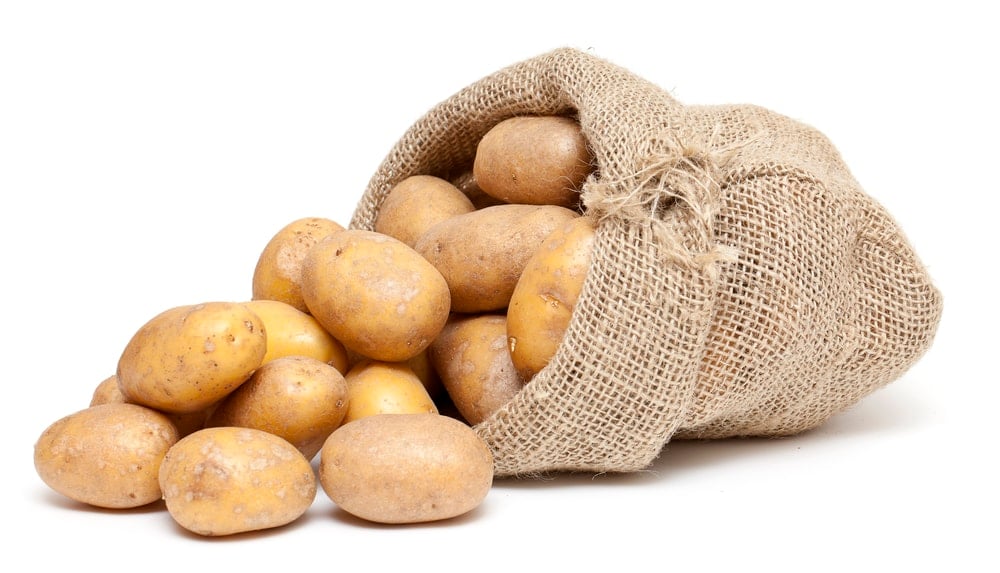The Truth About Gout and Potatoes
People with gout, kidney stones, or a related illness are frequently advised to follow a low-purine diet. The diet entails restricting or eliminating specific foods and beverages in favor of healthier alternatives.
While a low-purine diet is intended to alleviate the symptoms of specific disorders, it may also benefit overall health and well-being.
Potatoes are a satisfying, low-purine food that is also abundant in vitamin C, which lowers uric acid levels. They are also one of the most popular foods in the United States, and they can be prepared in a variety of ways.
While many people consider veggies to be healthy, potatoes have caused some debate. Many people believe they should limit their intake due to their high starch content. In addition, potatoes are frequently associated with unhealthy fried and processed foods.
Nevertheless, they’re actually quite excellent for you.
The meat and potatoes of gout diets
There are numerous myths concerning nutrition and gout. Gout sufferers are correct to be skeptical of the numerous diet fads that appear to target their clients’ wallets rather than the symptoms they claim to treat.
The acute pain induced by a gout flare-up may be so great in some people that even a bed sheet touching the toe produces considerable suffering.
With or without treatment, these excruciating attacks normally fade in a matter of hours to days. In more severe cases, an episode may last for weeks.
Managing your gout symptoms is, without a doubt, a serious matter.
Potatoes are gout-friendly
In terms of purine and fructose levels, potatoes are still considered acceptable to eat in a well-balanced gout diet. However, they have a high glycemic index (GI) and may result in dangerously high blood sugar levels.
However, the way they are cooked and consumed may help to reduce this to some extent. Of course, the quantity of the meal and the frequency with which it is consumed plays a role.
Here’s a rundown of the health advantages of potatoes, as well as the best methods to prepare them for maximum nutritional value.
How gout-friendly are potatoes, really?
Potatoes are not a particularly effective gout treatment. They have almost no effect on the condition and are not particularly popular among gout sufferers. If you have gout, you should still include potatoes in your diet.
The primary reason for this is that potatoes are high in starchy carbohydrates, which might make you feel full faster than ever before. That means you may include them as a large part of your diet, along with vegetables and fruit, and feel fantastic while keeping your risk of gaining weight to a minimum.
As a gout sufferer, your chances of experiencing negative effects from eating potatoes are slim to none. Potatoes are low in purines, which means you won’t have another gout episode. They are one of the most recommended foods for anyone suffering from gout.
Potatoes’ Health and Nutritional Benefits
Potatoes are an excellent addition to any gout-friendly diet for a multitude of reasons. Not to mention the fact that it is relatively inexpensive, easy to grow, and abundant in a variety of nutrients.
Potatoes are a nutrient-dense food
Potatoes are a good source of a variety of vitamins and minerals. They include plenty of folate, pantothenic acid, and riboflavin, as well as vitamins B1, B3, and B6, and minerals like potassium, phosphorus, and magnesium.
The nutritional value of potatoes varies based on the variety and preparation method. Frying potatoes, for example, adds more calories and fat than baking them.
It’s also worth noting that the potato skin includes a significant number of vitamins and minerals. Potatoes that have been peeled have a lower nutritional value.
Potatoes as an Antioxidant Superfood
Flavonoids, carotenoids, and phenolic acids are abundant in potatoes. In the body, these chemicals work as antioxidants by neutralizing potentially damaging molecules known as free radicals.
When free radicals build up, they may raise the chance of developing chronic diseases such as heart disease, diabetes, and cancer. A recent test-tube study showed that the antioxidants included in potatoes may inhibit the growth of liver and colon cancer cells.
Colored potatoes, such as purple potatoes, offer three to four times more antioxidants than white potatoes, according to studies. As a result, they may be more effective at neutralizing free radicals.
However, most of this information comes from test-tube experiments. More human-based research, on the other hand, is currently being conducted to produce more conclusive results.
Potatoes may help control blood sugar levels
Potatoes contain resistant starch, which is a unique form of starch. This starch is not broken down or absorbed completely by the body. Instead, it reaches the large intestine, where it provides nutrition to your gut’s beneficial bacteria.
Resistant starch has been linked to a variety of health benefits, including reduced insulin resistance, which improves blood sugar control. Resistant starch has been discovered to have the potential to reduce insulin resistance by up to 33%, according to scientists.
According to a recent study, eating potatoes may assist people with type 2 diabetes control their blood sugar overnight, despite traditional dietary advice.
It’s also worth noting that you can boost the amount of resistant starch in potatoes. To do so, put boiling potatoes in the fridge overnight and eat them cold the next day.
Potatoes may improve your gut health
Potatoes’ resistant starch may also benefit digestive health. When resistant starch enters the big intestine, it feeds the beneficial gut bacteria. These bacteria digest it and convert it to butyrate, a type of short-chain fatty acid. Butyrate is the gut bacteria’s preferred food source.
Baked potatoes also include a lot of fiber, which aids digestion. Diarrhea and constipation may both be alleviated by a high-fiber diet.
People suffering from digestive disorders such as irritable bowel syndrome may find the fiber in baked potatoes to be very beneficial in treating symptoms and regulating digestion.
Potatoes are gluten-free (naturally)
Gluten is a protein found in grains such as wheat, rye, barley, and others. Potatoes are a sort of starchy vegetable, not a grain. As a result, potatoes are gluten-free, with one limitation, which we’ll get to in a minute.
Gluten-free eating is one of the most popular diets in the world. However, the majority of people do not suffer any negative effects from eating gluten.
People with celiac disease or non-celiac gluten sensitivity, on the other hand, may experience acute discomfort while eating gluten-containing meals. Celiac disease is a disorder in which your immune system misidentifies gluten as a foreign invader, similar to how bacteria and viruses cause infection.
That being said, many common potato recipes are not gluten-free, despite the fact that potatoes are gluten-free. Potatoes in their raw form do not contain gluten and are thus suitable for celiacs and anyone following a gluten-free diet.
However, because even the most basic potato meals are frequently cooked with the addition of gluten-containing ingredients, these recipes are not suitable for individuals following a gluten-free diet.
French Fries
French fries are one of the most popular foods in the United States, frequently served as a side dish to meals and seen in fast-food restaurants. The average American consumes approximately 30 pounds of french fries every year.
French fries are high in grease and fat, making them unsuitable for persons suffering from gout. They are also frequently prepared in the same fryer as gluten-containing dishes like battered chicken and fish patties.
To make them crispy, they are often dusted with flour or coated with a flour-based breading.
Fries are a no-go unless the menu expressly specifies that they are gluten-free, or the restaurant can guarantee a special preparation for you using a dedicated gluten-free fryer.
Potato Chips
While potato chips are technically a gluten-free product, gluten does occasionally find its way into them:
- Wheat starch or malt vinegar are found in some potato chips sold in stores and served in restaurants (derived from the gluten containing grain barley).
- When potato chips are flavored, they can be seasoned with a variety of extra substances, including gluten-containing maltodextrin.
- Processed meals, such as chips and snacks, are unhealthy and may aggravate the gout condition in the joints.
Mashed potatoes
In restaurants, mashed potatoes are usually served with gravy, which is made primarily of flour and butter. Before you order, inquire if their basic mashed potatoes are okay to consume and, if so, order them without the gravy.
Also, if you decide to cook this recipe at home and buy instant mashed potatoes, make sure to read the ingredient label carefully because certain brands aren’t gluten free.
Potatoes are versatile and delicious
Potatoes can be cooked in a variety of methods, including boiling, baking, and steaming. However, if you use a lot of oil when frying potatoes, the calorie content will skyrocket.
Instead, slice the potatoes and bake them with a little drizzle of extra virgin olive oil and a sprinkling of rosemary in the oven.
Make sure not to peel the potatoes because the skin contains the majority of the nutrients. This will ensure that you get the most nutrients out of the potato.
Don’t be a potato head; eat properly
Potatoes can be a significant asset in their gout diet if they are prepared in a healthy way, such as not frying and being cautious of the fillings and sauces used.

